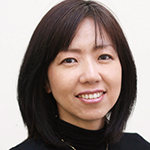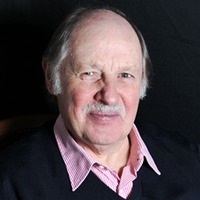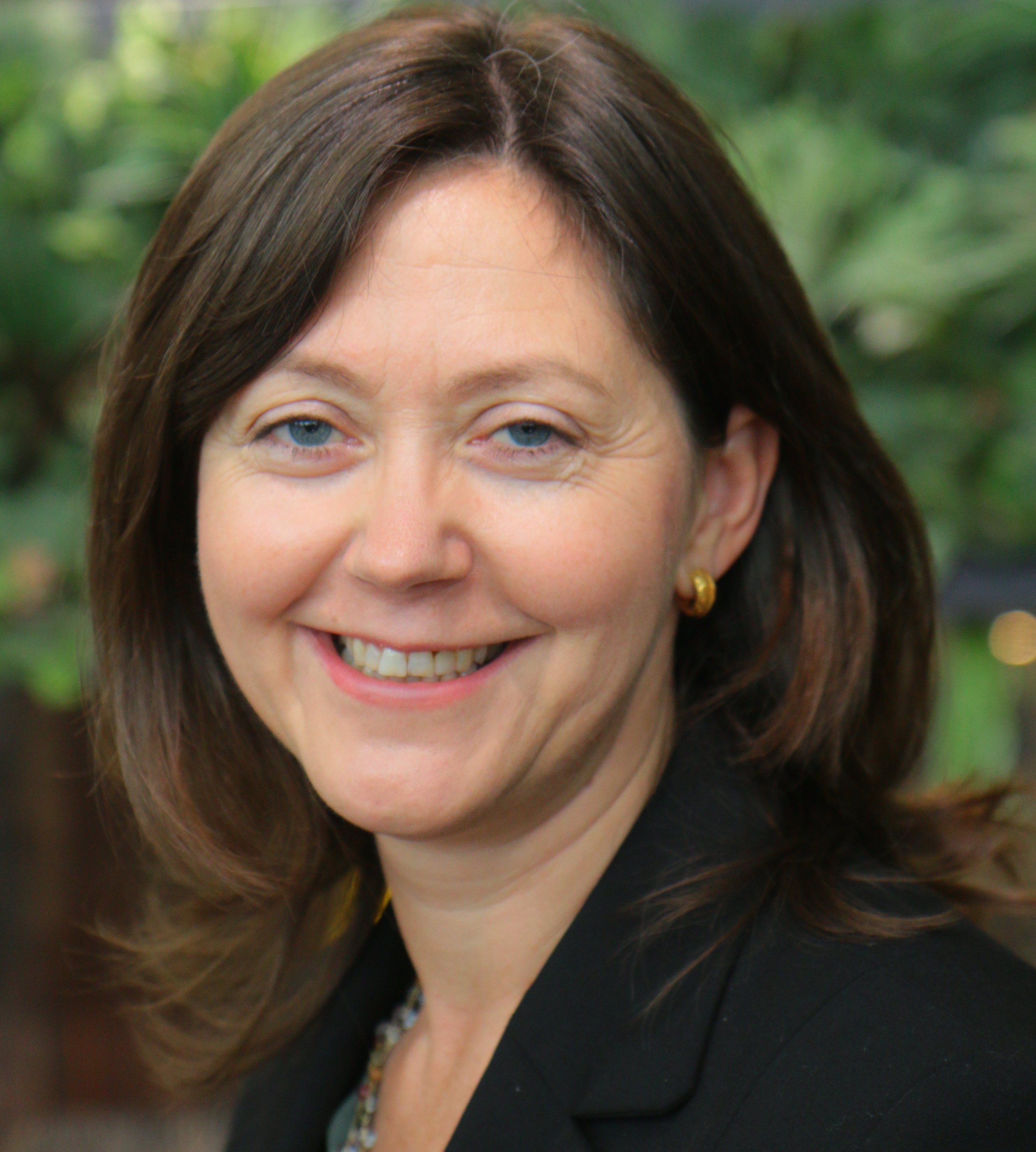- Details

Assistant Professor: TESOL
Dr. Scott Aubrey is a TESOL Assistant Professor in the Anaheim University Graduate School of Education. Scott Aubrey received his Ph.D. in Applied Linguistics from the University of Auckland in 2016. He has taught at language schools and universities in Korea, Japan, and Hong Kong. Scott’s research and teaching interests include L2 motivation, the role of inter-cultural contact (inside and outside the classroom) in language learning, task-based language teaching, and L2 writing instruction. His published work includes articles in leading journals such as TESOL Quarterly, Language Teaching Research, and The Modern Language Journal. Scott currently lives in Hong Kong and teaches courses in English language education at The Chinese University of Hong Kong.
- Details

Associate Professor: TESOL
Dr. Natsuko Shintani is a TESOL Associate Professor in the Anaheim University Graduate School of Education. She obtained her Ph.D. from the University of Auckland in 2011. She has worked as a language teacher in Japan and New Zealand, including in her own private language school for children. Her research interests include task-based language instruction, the role of interaction in second language acquisition and written corrective feedback. She has also worked on several meta-analysis studies of form-focused instruction. She has published widely in leading journals and is currently working on a single-authored book, The Role of Input-Based Tasks in Foreign Language Instruction for Young Learners, to be published by John Benjamins.
- Details

Professor: TESOL
Dr. Sandra McKay was a TESOL Professor in the Anaheim University Graduate School of Education, Professor Emeritus of English at San Francisco State University and an affiliate faculty member in the Second Language Studies program at the University of Hawaii, Manoa. She received her doctorate from the college of education at the University of Minnesota in applied linguistics. Her main areas of work and research were second language teacher education, sociolinguistics (with a focus on English as an international English) and research methods. She also published and presented on topics related to culture, diversity and inclusion. Her books include Teaching English as an International Language: Rethinking Goals and Approaches (2002, Oxford University Press) which was the Winner of the Ben Warren International Book Award for outstanding teacher education materials, Sociolinguistics and Language Education (edited with Nancy Hornberger, 2010, Multilingual Matters) and Researching Second Language Classrooms (2006, Lawrence Erlbaum Associates). She also published widely in international journals. She served as TESOL Quarterly editor from 1994 to 1999 and has served on the editorial advisory board for the Journal of Second Language Writing and the TESOL Quarterly. She received four Fulbright grants, as well as many academic specialist awards and distinguished lecturer invitations. Her research interest in English as an international language developed from her Fulbright Grants, academic specialists awards and her extensive work in international teacher education in countries such as Chile, Hong Kong, Hungary, Latvia, Morocco, Japan, Singapore, South Africa, South Korea and Thailand.
I am first and foremost a teacher educator since I strongly believe that excellent teachers can make a tremendous impact on the lives of individuals. I am looking forward to sharing my passion for teacher education with you.
BOOKS
- Brown, J., & Mckay, S. (2016). Teaching and Assessing EIL in Local Contexts Around the World. New York: Routledge.
- Alsagoff, L., Hu, G., Mckay, S., & Renandya, W. (2012) (Eds.). Teaching English as an International Language: Principles and Practices.New York: Routledge.
- Hornberger, N., & Mckay, S. (2010) (Eds.). Sociolinguistics and Language Education. Clevedon: Multilingual Matters.
- Bokhorst-Heng, W., & Mckay, S. (2008). International English in its Sociolinguistic Contexts: Towards a Socially Sensitive Pedagogy. New York: Frances Taylor.
- Mckay, S. (2006). Researching Second Language Classrooms. Mahwah: Lawrence Erlbaum Associates.
- Mckay, S. (2002). Teaching English as an International Language: Rethinking Goals and Approaches. Oxford University Press.
- Mckay, S., & Wong, S. (2000). New Immigrants in the US: Readings for Second Language Educators. Cambridge: Cambridge University Press.
- Hornberger, N., & Mckay, S. (1996) (Eds.). Sociolinguistics and Language Teaching. Cambridge: Cambridge University Press.
- Mckay, S. (1993). Agendas for Second Language Literacy. Cambridge: Cambridge University Press.
- Mckay, S. (1992). Teaching English Internationally: An Introduction. Oxford: Oxford University Press.
- Mckay, S., & Wong, S. (1988). Language Diversity: Problem or Resource? New York: Newbury House Publishers.
- Details

Professor: TESOL
John Macalister is a TESOL Professor at Anaheim University and Head of the School of Linguistics and Applied Language Studies at Victoria University of Wellington, New Zealand, and immediate past president of the Applied Linguistics Association of New Zealand. His work in language curriculum design and language teaching methodology have been highlighted in two books published by Routledge and co-authored with Professor Paul Nation. One of the defining characteristics of John’s work is the link between research and practice with a recent example being the design of an English curriculum for trainee seafarers in Kiribati, an island republic in the Central Pacific.As well as Kiribati and New Zealand, John has worked in Namibia, Thailand, Cambodia and Vanuatu.
Kia ora tatou, and welcome. I’m excited to begin teaching on the TESOL program at Anaheim, and look forward to getting to know you and to learn about the challenges in your part of the world over the next few weeks.
BOOKS
- John Macalister, I.S.P. Nation. (2011) Case Studies in Language Curriculum Design. New York:Routledge.
- I.S.P Nation, John Macalister. (2009) Language Curriculum Design. New York:Routledge.
- Details

Professor: TESOL
Dr. Thom Hudson is a TESOL Professor in the Anaheim University Graduate School of Education. He received his BS degree in sociology from the University of California at Berkeley, and his MA degree in TESOL and Ph.D. in Applied Linguistics from the University of California at Los Angeles. Dr. Hudson is professor of Second Language Studies (SLS) at the University of Hawai'i at Mānoa, and co-editor of the electronic journal Reading in a Foreign Language. He has been on the Department of SLS faculty at UHM since 1989. Prior to coming to Hawai’i, he taught three years in Cairo, Egypt, numerous years in the U.S., directed a reading English for science and technology project for two years in Guadalajara, Mexico, and since coming to Hawai’i has spent a sabbatical year teaching in Japan. He was the Director of the English Language Institute at the University of Hawai’i for three years. He was also Co-Principal Investigator of a grant entitled “Expanding English Language Capacity in Vietnam” for three years from 2003-2006, and made several teacher training visits to Vietnam during that time. He was the Graduate Chair of the Department of Second Language Studies from August 2006 until the end of July 2012.
Dr. Hudson's research has concentrated on second language reading, second language testing, language for specific purposes, program development, and quantitative research methods. He has had a long term interest in criterion-referenced language testing and task based language testing in particular. His research has appeared in the journals Language Learning, Studies in Second Language Acquisition, TESOL Quarterly, Language Testing, Annual Review of Applied Linguistics, and Language and Communication. He is author of the text Reading in a Second Language, published in 2007 by Oxford University Press. He co-authored Developing Prototypic Measures of Cross-Cultural Pragmatics, with E. Detmer & J.D. Brown, Designing Second Language Performance Assessments, with J. Norris, JD Brown, and J. Yoshioka, and An Investigation of Second Language Task-Based Performance Assessments, with JD Brown, J. Norris, and W. Bonk, and Criterion-Referenced Language Testing, with JD Brown. Additionally, he co-edited A Focus on Language Test Development with JD Brown. He also has chapters in several books. He is currently completing a textbook manuscript for quantitative research methods with the tentative title Research Design and Analysis in Applied Linguistics.
Welcome to the Ed.D. program at Anaheim University. TESOL is an exciting field, one that is constantly changing in its academic focus. I look forward to working with you in your academic areas of interest, particularly language testing and quantitative research. My research has focused on quantitative approaches to the study of language learning and use. One of my more recent interests has been in the area of standards based assessment and the personal and social consequences the implementation/imposition of those standards.
BOOKS
- Hudson, T. (In preparation). Research design and analysis in applied linguistics.
- Hudson, T. (2007). Teaching second language reading. Oxford: Oxford University Press.
- Hudson, T., & Clark, M. (2007). Case studies in foreign language placement: Practices and possibilities. Honolulu: University of Hawai'i, National Foreign Language Resource Center.
- Brown, J. D. & Hudson, T. (2002) Criterion-referenced language testing. Cambridge: Cambridge University Press.
- Brown, J.D., Hudson, T., Norris, J., & Bonk, W.J. (2002). An investigation of second language task-based performance assessments. Honolulu: University of Hawai’i at Manoa, Second Language Teaching and Curriculum Center. University of Hawai'i Press
- Hudson, T. & Brown, J.D. ( 2001) (Eds.) A focus on language test development: expanding the language proficiency construct across a variety of tests. Honolulu: University of Hawai’i at Manoa, Second Language Teaching and Curriculum Center. University of Hawai'i Press
- Brown, J. D., Hudson, T., & Kim, Y. (2001). Developing Korean language performance assessments.(Research Note #27). Honolulu, HI: University of Hawai’i. Second Language Teaching and Curriculum Center.
- Brown, J.D., Hudson, T., Norris, J.M., & Bonk, W. (2002). Investigating second language performance assessments. Honolulu: Second Language Teaching and Curriculum Center. University of Hawai'i at Manoa. University of Hawai'i Press.
- Norris, J., Brown, J. D., Hudson, T. & Yoshioka, J. (1998). Designing Second Language Performance Assessments. Honolulu: Second Language Teaching and Curriculum Center. University of Hawai'i at Manoa. University of Hawai'i Press.
- Hudson, T., Detmer, E. and Brown, J.D. (1995). Developing prototypic measures of cross cultural pragmatics. Honolulu: Second Language Teaching and Curriculum Center. University of Hawai'i at Manoa. University of Hawai'i Press.
SELECTED ARTICLES AND BOOK CHAPTERS
- Hudson, T. (In preparation). Essentials of quantitative research for classroom teachers. In Brown, J.D. & Coombe, C. (Eds.) The Cambridge Guide to Language Research.
- Hudson, T. (In preparation). Presenting quantitative data visually. In L. Plonsky (Ed). Advancing Quantitative Methods in Second Language Research
- Hudson, T. (2014). Overview of standards-based language assessment for English learners. TESOL Quarterly. Special Issue, "K-12 Standards-Based Educational Reform: Implications for Immigrant and Indigenous English Language Learner Populations." 48(3)588-595.
- Hudson, T. (2013). Criterion-referenced approach to language assessment. In Kunnan, A. (Ed.). The Companion to Language Assessment. New York: Routledge. 561-577.
- Hudson, T.(2012). Chapter 33: Standards-based testing. In Fulcher, G. & Davidson, Routledge Handbook of Language Testing. New York: Routledge. 479-494.
- Hudson, T. (2013). Correlational Research in Language Assessment. In. C. Chapelle (ed.) The Encyclopedia of Applied Linguistics. Wiley-Blackwell Publishers.
- Hudson, T. (2005). Current trends in assessment scales and criterion-referenced language assessment. Annual Review of Applied Linguistics. Volume 25.
- Norris, J.M., Brown, J.D., Hudson, T.D., & Bonk, W. (2002). Examinee abilities and task difficulty in task-based second language performance assessment. Language Testing. 19, 395-418.
- Hudson, T. (2001). Indicators for cross-cultural pragmatic instruction: some quantitative tools. Rose, K. & Kasper, G. Pragmatics in language teaching. Cambridge: Cambridge University Press.
- Hudson, T. (2001). Self-assessment methods in cross-cultural pragmatics. In Hudson, T. & Brown, J.D. (Eds.) A focus on language test development: expanding the language proficiency construct across a variety of tests. Honolulu: University of Hawai’i, Second Language Teaching and Curriculum Center. 57-74.
- Hudson, T. (1998). Theoretical perspectives on reading. Annual Review of Applied Linguistics: XVIII. 43 60.
- Brown, J. D., & Hudson, T. (1998). Alternatives in language assessment. TESOL Quarterly. 32:653 675
- Hudson, T. (1993). Nothing does not equal zero: Problems with applying developmental sequence findings to assessment and pedagogy. Studies in Second Language Acquisition. 15:461 493.
- Hudson, T. (1993). Surrogate indices for item information functions in criterion referenced language testing. Language Testing.10, 2:171 191.
- Hudson, T. (1993). Testing the specificity of ESP reading skills. In Douglas, D. and Chapelle, C. A New Decade of Language Testing Research. Washington, D.C.: TESOL. 58 82.
- Hudson, T. (1991). Relationships among IRT item discrimination and item fit indices in criterion referenced language testing. Language Testing. 8,2:160 181.
- Lynch, B.K. and Hudson, T. (1991). EST Reading. In Celce Murcia, M. (Ed.) Teaching English as a Second or Foreign Language, 2nd edition. Rowley, Mass. Newbury House. 216 232.
- Hudson, T. (1991). A content comprehension approach to reading English for science and technology. TESOL Quarterly. 25,1: 77 104.
- Hudson, T. (1990) The discourse of advice giving in English. Language and Communication. Vol. 10,4: 285 297.
- Hudson, T. (1989) Mastery decisions in program evaluation. In Johnson, R.K. (Ed.) The Second Language Curriculum. Cambridge, Cambridge University Press. 259 269.
- Davidson, F., Hudson, T. and Lynch, B. (1985) Language Testing: Operationalization in Classroom Measurement and L2 Research. In Celce Murcia, M. (Ed.) Beyond Basics in TESOL: Issues and Research in Language Teaching. Rowley, Mass. Newbury House. 137 152.
Henning, G. Hudson, T. and Turner, J. (1985) Item response theory and the assumption of unidimensionality for language tests. Language Testing. 2,2:141 154. - Hudson, T. and Lynch, B. (1984). A criterion referenced measurement approach to ESL achievement testing. Language Testing. 1,2: 171 201.
- Hudson, T. (1982). The effects of induced schemata on the 'short circuit' in L2 reading: non decoding factors in L2 reading performance. Language Learning. 32,1:1 31. (Reprinted in Carrell, P., Devine, J., Eskey, D. (Eds) (1988) Interactive Approaches to Second Language Reading. Cambridge, Cambridge University Press.)
- Details

Professor: TESOL
Dr. Brian Tomlinson is a TESOL Professor in the Anaheim University Graduate School of Education. He is considered to be one of the world's leading experts on materials development for language learning. In 1993 he established the world's first MA dedicated to the study of materials development for language learning (at the University of Luton in the UK) and he founded MATSDA (Materials Development Association). He has been Chair and then President of MATSDA ever since 1993 and, as such, he launched the journal Folio and ran (with Hitomi Masuhara) a number of materials writing workshops in the UK and in Botswana, Malaysia, Mauritius, Mexico, the Seychelles, Singapore, Turkey and Vietnam. He has also organised and presented the opening plenary at thirty international MATSDA conferences. In addition he has given plenary presentations on materials development in over sixty countries. His many books on materials development are considered to be the leaders in the field. They include Materials Development in Language Teaching (Cambridge University Press: 1998, 2011), Developing Materials for Language Teaching (Continuum: 2003), English Language Learning Materials: A Critical Review (Continuum: 2008), Research for Materials Development in Language Learning - with Hitomi Masuhara (Continuum: 2010) and Applied Linguistics and Materials Development - with Hitomi Masuhara (Continuum: 2012). He has also just finished a state of the art survey of the literature on materials development published in the Cambridge University Press journal Language Teaching. Dr. Tomlinson has also published books on language teaching methodology (Teaching Secondary English - with Rod Ellis: Longman 1980), on language through literature (Openings: Penguin: 1994) and on language awareness (Discover English - with Rod Bolitho: Macmillan 1995), as well as contributing to textbooks for Bulgaria, for China, for Ethiopia, for Japan, for Malaysia, for Morocco, for Nigeria, for Turkey, for Namibia, for Singapore and for Zambia. He is currently a Visiting Professor at Leeds Metropolitan University, and an Advisor for the British Council English Language Advisory Group.
- Details
 Natsuko Shintani, Ph.D.
Natsuko Shintani, Ph.D.
Associate Professor: TESOL
Dr. Natsuko Shintani is a TESOL Associate Professor in the Anaheim University Graduate School of Education. She obtained her Ph.D. from the University of Auckland in 2011. She has worked as a language teacher in Japan and New Zealand, including in her own private language school for children. Her research interests include task-based language instruction, the role of interaction in second language acquisition and written corrective feedback. She has also worked on several meta-analysis studies of form-focused instruction. She has published widely in leading journals and is currently working on a single-authored book, The Role of Input-Based Tasks in Foreign Language Instruction for Young Learners, to be published by John Benjamins.
- Details
Professor: TESOL
Dr. Jo Mynard is a Professor in the Anaheim University Graduate School of Education, Professor in the English Department, Director of the Self-Access Learning Center (SALC), and Director of the Research Institute for Learner Autonomy Education (RILAE) at Kanda University of International Studies (KUIS) in Chiba, Japan. She completed her Ed.D. in TEFL from the University of Exeter, UK in 2003 and an M.Phil. in Applied Linguistics from Trinity College, University of Dublin, Ireland in 1997. She has lived in Japan since 2015, but has also worked in the United Arab Emirates, France, Spain, Germany, Australia, the USA and Ireland and has been involved in language education since 1993. She is the founding editor of SiSAL Journal (Studies in Self-Access Learning), has been a committee member of the IATEFL Learner Autonomy Special Interest Group since 2001, and is an executive officer for the International Association for the Psychology of Language Learning. Her professional interests are learner autonomy, advising in language learning, affect, and learning beyond the classroom/self-access. She has co-edited four books. Two on learner autonomy (2011; 2014), and two on advising in language learning (2012). She co-authored Reflective Dialogue (Research and Resources in Language Teaching) with Satoko Kato (Routledge, 2016) and Dynamics of a Social Language Learning Community: Beliefs, Membership and Identity (Multilingual Matters, 2020).
Message from Jo Mynard, Ph.D
Hi everyone! I’m really looking forward to meeting you online and engaging in discussions about language teaching and learning!
Books
- Everhard, C. J., Mynard, J., with Smith, R. (Eds.) (2011), Autonomy in language learning: Opening can of worms. Canterbury, UK: IATEFL.
- Kato, S., & Mynard, J. (2015). Reflective dialogue: Advising in language learning. New York, NY: Routledge.
- Ludwig, C., & Mynard, J. (Eds.) (2012), Autonomy in language learning: Advising in action. Canterbury, UK: IATEFL
- Mynard, J., & Carson, L. (Eds.) (2012), Advising in language learning: Dialogue, tools and context. Harlow: Longman.
- Mynard, J., & Ludwig, C. (Eds.) (2014), Autonomy in language learning: Tools, tasks and environments. Faversham, UK: IATEFL.
Book chapters
- Carson, L., &. Mynard, J. (2012). Introduction. In J. Mynard & L. Carson (Eds.), Advising in language learning: Dialogue, tools and context (pp. 3-25). Harlow: Pearson Education.
- Mynard, J., & Troudi, S. (2008). Female Emirati students' perceptions of using a chat room to learn English. In P. Davidson, J. Shewel and W.J. Moore (Eds.) Educational technology in the Arabian Gulf: Theory, research and pedagogy (pp. 249-262). Dubai: TESOL Arabia.
- Mynard, J. (2011). Conclusions. In C. Everhard and J. Mynard with R. Smith (Eds.), Autonomy in language learning: Opening can of worms (p. 253). Canterbury, UK: IATEFL.
- Mynard, J. (2012). A suggested model for advising in language learning. In J. Mynard & L. Carson (Eds), Advising in language learning: Dialogue, tools and context (pp. 26-41). Harlow, UK: Pearson.
- Mynard, J., & Ludwig, C. (2014). Introduction. In J. Mynard & C. Ludwig (Eds.), Autonomy in language learning: Tools, tasks and environments. Faversham, UK: IATEFL.
- Mynard, J. (2017). Investigating social presence in a social networking environment. In K. Van de Poel & C. Ludwig (Eds.). Collaborative language learning and new media: Insights into an evolving field (pp. 276-293). Germany: Peter Lang.
- Mynard, J., & McLoughlin. D. (forthcoming). “Sometimes I just want to know more. I’m always trying.”: The role of interest in sustaining motivation for self-directed learning. In W. Meng Chan, I. Walker, D. Chan and M. Nagami (Eds.) Learning in and beyond the classroom: Ubiquity in foreign language education.
- Mynard, J. (forthcoming). Taking stock and moving forward: Future recommendations for the field of self-access language learning. In L. Velasco Martínez, J. Porras Pulido, J. & T. A. María del Rosario Aragón López (Eds.) Nuevos escenarios en torno a la autonomía del aprendizaje de lenguas extranjeras [New scenarios around the learning of foreign languages].
- Mynard, J. (forthcoming). Advising and self-access learning: Promoting language learner autonomy beyond the classroom. In H. Reinders, S. Ryan, & S. Nakao (Eds.) Innovations in language learning and teaching: The case of Japan. Palgrave Macmillan.
- Sekiya, Y., Mynard, J., & Cooker, L. (2010). 学習者の自律を支援するセルフアクセス学習 [Self-access learning which supports learner autonomy]. In H. Kojima, N. Ozeki & T. Hiromori. (Eds.), 「英語教育学大系」全13巻中の第6巻「成長する英語学習者―学習者要因と自律学習」大修 館書店 [Survey of English Language Education: Vol. 6. Developing English learners: Learner factors & autonomous learning] (pp. 191-210). Tokyo: Taishukan-shoten.
- Sekiya, Y., Mynard, J., & Cooker, L. (2010). 大学英語教育への応用 8. セルフアクセス学習と大学教育 [Implications for university education: 8. Self-access learning and university education]. In H. Kojima, N. Ozeki & T. Hiromori. (Eds.), 「英語教育学大系」全13巻中の第6巻「成長する英語学習者―学習者要因と自律学習」大修 館書店 [Survey of English Language Education: Vol. 6. Developing English learners: Learner factors & autonomous learning] (pp. 225-227). Tokyo: Taishukan-shoten.
- Thornton, K., & Mynard, J. (2012). Investigating the focus of advisor comments in a written advising dialogue. In C. Ludwig and J Mynard (Eds.), Autonomy in language learning: Advising in action (pp. 137-153). Canterbury, UK: IATEFL.
- Troudi, S., & Mynard. J. (2014). The Internet chat room: A tool for promoting learner autonomy. In S. Troudi & R. Al Mahrooqi (Eds.), Using technology in foreign language teaching. Cambridge, UK: Cambridge Scholars Publishing.
- Valdivia, S., McLoughlin, D., & Mynard, J. (2012). The portfolio: A practical tool for advising learners in a self-access centre in Mexico. In J. Mynard & L. Carson (Eds.), Advising in language learning: Dialogue, tools and context (pp. 205-210). Harlow: Pearson Education.
- Yamaguchi, A., Hasegawa, Y., Kato, S., Lammons, E., McCarthy, T., Morrison, B. R., Mynard, J., Navarro, D., Takahashi, K., & Thornton, K. (2012). Creative Tools that Facilitate the Advising Process. In C. Ludwig and J. Mynard (Eds.) Autonomy in language learning: Advising in action (pp. 115-136). Canterbury, UK: IATEFL.
Articles in referred journals
- Castellano, J., Mynard, J., & Rubesch, T. (2011). Student technology use in a self-access centre. Language Learning and Technology, 15(3), 12-27.
- Curry, N., Mynard, J., Noguchi, J., & Watkins, S. (2017). Evaluating a self-directed learning course in a Japanese university. International Journal of Self-Directed Learning, 14(1), 17-36.
- McLoughlin, D., & Mynard, J. (2009). An analysis of higher-order thinking in online discussions. Innovations in Education and Teaching International, 46(2), 147-160.
- McLoughlin, D., & Mynard, J. (2015). How do independent language learners keep going? The role of interest in sustaining motivation. rEFLections: Special issue: Innovation in ELT, 19, 38-57.
- McLoughlin, D., & Mynard, J. (forthcoming). How do self-directed learners keep going? The role of interest in sustained learning. 2017 PanSIG Journal.
- Mynard, J. (2006). A teacher's role in using synchronous computer-mediated communication to promote learner autonomy. The Language Teacher, 30(2), 13-16.
- Mynard, J., & Almarzouqi, I. (2006). Investigating peer tutoring. ELT Journal, 60(1), 13-22.
- Mynard, J. (2007). A blog as a tool for reflection for English language learners. Asian EFL Journal: Professional teaching articles, 24. http://www.asian-efl-journal.com/pta_Nov_07_jm.php
- Mynard, J., & Navarro, D. (2010). Report on the Japan Association of Self-Access Learning (JASAL) Forum, at the Japan Association for Language Teaching (JALT) 2009 Conference in Shizuoka. Studies in Self-Access Learning Journal, 1(1), 65-67.
- Mynard, J. (2011). Learning environments that facilitate reflection on language learning. JALT CALL Journal, 7(3), 293-306.
- Mynard, J., & Thornton, K. (2012). The degree of directiveness in written advising: A preliminary investigation. Studies in Self-Access Learning Journal, 3(1), 41-58.
- Mynard, J. (2014). Striving for diversity, accessibility and quality: Evaluating SiSAL Journal. Studies in Self-Access Learning Journal, 5(2). Retrieved from: http://sisaljournal.org/archives/june14/mynard/
- Mynard, J. (2016). Looking backwards and forwards: Evaluating a 15-year-old SALC for continued growth. Studies in Self-Access Learning Journal, 7(4), 427-436.
- Mynard, J., & Stevenson, R. (2017). Promoting learner autonomy and self-directed learning: The evolution of a SALC curriculum. Studies in Self-Access Learning Journal, 8(2), 169-182.
- Takahashi, K., Mynard, J., Noguchi, J., Sakai, A., Thornton, K., & Yamaguchi, A. (2013). Needs analysis: Investigating students’ self-directed learning needs using multiple data sources. Studies in Self-Access Learning Journal, 4(3), 208-218.
- Valdivia, S., McLoughlin, D., & Mynard, J. (2011). The importance of affective factors in self-access language learning courses. Studies in Self-Access Learning Journal, 2(2), 91-96.
- Watkins, S., Curry, N., & Mynard, J. (2014). Piloting: Re-designing and evaluating a self-directed learning curriculum. Studies in Self-Access Learning Journal, 4(3), 58-78. Conference proceedings
- Kershaw, M., Mynard, J., Promnitz-Hayashi, L., Sakaguchi, M., Slobodniuk, A., Stillwell, C., & Yamamoto, K. (2010). Promoting autonomy through self-access materials design. In A. Stoke (Ed). JALT 2009 Conference Proceedings: The Teaching-Learning Dialogue: An Active Mirror, pp. 151-159.
- McLoughlin, D., & Mynard, J. (2007). Using online forums and promoting higher-order thinking. In Jendli, A., Troudi, S. & Coombe, C. (Eds.) The Power of Language: Perspectives from Arabia. TESOL Arabia 2006 conference proceedings. Dubai: TESOL Arabia, pp. 344-356.
- Mynard, J., & Sorflaten, R. (2003). Facilitating learning through peer tutoring. In Syed, Z., Coombe, C. and Troudi, S. (Eds). TESOL Arabia 2002 conference proceedings Volume VIII. Critical reflection and practice, pp. 287-302.
- Mynard, J. (2004). Investigating evidence of learner autonomy in a virtual EFL classroom: A grounded theory approach. In J. Hull, J. Harris, and P. Darasawang (Eds.). Research In ELT: proceedings of the international conference 9-11 April, 2003. School of Liberal Arts and the Continuing Education Center, King Mongkut's University of Technology Thonburi, Thailand pp. 117-127.
- Mynard, J. (2009). How blogging can promote learner autonomy. In Carroll, M., Castillo, D., Cooker, L., & Irie, K. (Eds.). (2009). Proceedings of the Independent Learning Association 2007 Japan Conference (online): Exploring theory, enhancing practice: Autonomy across the disciplines. Kanda University of International Studies, Chiba, Japan, October 2007.
- Mynard, J. (2009). Using action research to improve a TOEIC preparation course. In B. Beaven, B. IATEFL 2008: Exeter conference selections. Canterbury: IATEFL, pp. 171-173.
- Mynard, J. (2010). Promoting cognitive and metacognitive awareness through self-study modules: An investigation into advisor comments. In W. M. Chan, S. Chi, K. N. Chin, J. Istanto, M. Nagami, J. W. Sew, T. Suthiwan, & I. Walker (Eds.), Proceedings of the Fourth Centre for Language Studies International Conference (pp. 610-627). Singapore: National University of Singapore.
- Mynard, J., & Navarro, D. (2010). Dialogue in self-access learning. In A. Stoke (Ed). JALT2009 Conference Proceedings: The Teaching-Learning Dialogue: An Active Mirror, pp. 95-102.
- Mynard, J. (2012). Raising awareness of learning processes with technology tools. The Asian Conference on Technology in the Classroom, Osaka, Japan 2012, pp. 1-9.
- Mynard, J., & McLoughlin, D. (2016). Sustaining motivation: Self-directed learners’ stories. Proceedings of the 7th Centre for Language Studies International Conference (pp. 217-228). Singapore: National University of Singapore.
Articles in institutional journals
- Burke, M., Hooper, D., Kushida, B., Lyon, P., Mynard, J., Sampson, R., & Taw, P. (2018). Observing a social learning space: A summary of an ethnographic project in progress. Relay Journal, 1(1), 209-220.
- Chen, A., & Mynard, J. (2018). Student perceptions of the English lounge after a layout change. Relay Journal, 1(1), 221-235.
- Murphey, T., Mynard, J., & Shanley, M. (2012). Editorial strategies for stimulating professional collaboration with peer reviewed publications. Studies in Linguistics and Language Teaching, 23.
- Murphey, T., & Mynard, J. (2014). An evaluation of the success of peer-review journals at KUIS. Studies in Linguistics and Language Teaching, 25.
- Mynard, J. (2007). Promoting learner autonomy in a Japanese college. Cross Culture (23), 43-53.
- Mynard, J. (2008). The Koryo College blog project 2005-2006: Observations and suggestions for future directions. Cross Culture, 24, 51-63.
- Mynard, J. (2012). An analysis of written advice on self-directed learning modules and the effect on learning. Studies in Linguistics and Language Teaching, 23, 125-150.
- Mynard, J., & Murphy, P. (2013). An investigation into offering flexible language courses utilising blended learning. Studies in Linguistics and Language Teaching, 24.
- Mynard, J. (2013). The role of chatting in the language classroom. Working Papers in Language Education and Research, 1(2), 44-57.
- Mynard, J., & McLoughlin, D. (2014). Affective factors in self-directed learning. Working Papers in Language Education and Research, 2(1), 27-41.
- Mynard, J., Curry, N., Noguchi, J., & Watkins, S. (2016). Studying the impact of the SALC curriculum on learning. Studies in Linguistics and Language Teaching, 27, 45-58.
- Mynard, J. (2017). The role of advising in developing awareness of learning processes: Three case studies. Studies in Linguistics and Language Teaching, 28, 123-161.
- Mynard, J. (2018). “Still sounds quite a lot to me, but try it and see”. Reflecting on my non-directive advising stance. Relay Journal, 1(1), 98-107.
- Mynard, J., Kato, S., & Reinders, H. (2018). Editorial. Relay Journal, 1(1), 1-5.
- Mynard, J., Kato, S., & Yamamoto, K. (2018). Reflective practice in advising: Introduction to the column. Relay Journal, 1(1), 55-64.
- Conference proceedings
- Mynard, J., & McLoughlin, D. (2016). Sustaining motivation: Self-directed learners’ stories. Proceedings of the 7th CLaSIC conference, Singapore, 217-228.
- Lammons, E., Momata, Y., Mynard, J., Noguchi, J., Watkins, S. (2015). Developing and piloting an app for managing self-directed language learning: An action research approach. In F. Helm, L. Bradley, M. Guarda, & S. Thouësny (Eds), Critical CALL – Proceedings of the 2015 EUROCALL Conference, Padova, Italy (pp. 1-6). Dublin: Research-publishing.net. doi:10.14705/rpnet.2015
- Mynard, J. (2012). Raising awareness of learning processes with technology tools. The Asian Conference on Technology in the Classroom, Osaka, Japan 2012, pp. 1-9.
Book reviews
- Mynard, J. (2006). Book review of "Learner autonomy across cultures: language education perspectives” Edited by David Palfreyman and Richard Smith". Independence, 37, 28-30.
- Mynard, J. (2008). Book review of “Learner autonomy in CALL environments” by Klaus Schwienhorst (2008). Independence, 44, 41-44.
- Mynard, J. (2012). Book review of “M. Nicolson, L. Murphy, & M. Southgate (Eds). (2011). Language teaching in blended contexts. Edinburgh, U.K.: Dunedin Academic Press”. London Review of Education.
- Mynard, J. (2017). Book review: Language learner autonomy: Theory, practice and research by David Little, Leni Dam and Lienhard Legenhausen. Studies in Self-Access Learning Journal, 8(4), 362-370.
- Mynard, J. (2016). Book review of “Elizabeth R. Miller: The language of adult immigrants: Agency in the making”. Applied Linguistics, 37(3), 445-450. doi: 10.1093/applin/amv077

